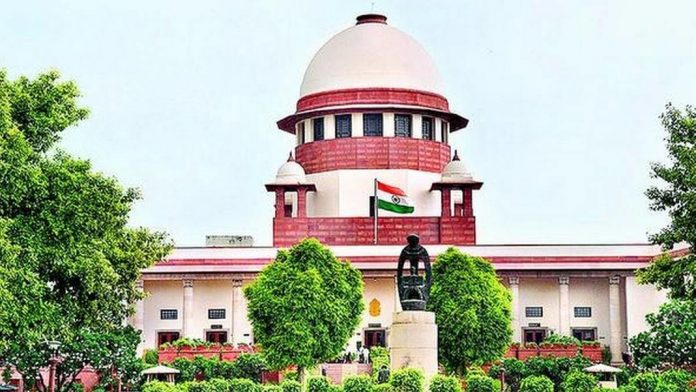Guwahati, Oct 17: The Supreme Court’s five-judge Constitution bench upheld the constitutional validity of Section 6A of the Citizenship Act, 1955, by a 4:1 majority on Thursday.
This provision, introduced in 1985 as part of the Assam Accord, sets the framework for granting citizenship to certain migrants in Assam.
Chief Justice DY Chandrachud, along with Justices Surya Kant, MM Sundresh, and Manoj Misra, supported the decision, while Justice JB Pardiwala dissented.
Section 6A of the Citizenship Act, 1955 – introduced in 1985 – was the legislative enactment of the Assam Accord. It classified ‘illegal’ immigrants of Indian origin who came into Assam from Bangladesh into three groups: those who came into the state before 1966; those who came into the state between 1966 and 25th March, 1971 (the official date of the commencement of the Bangladesh War); and those who came into the state post 25th March,1971.
The first group (pre-’66) was to be regularised, i.e. given citizenship of India. The second group (’66 – ’71) was to be taken off the electoral rolls, and regularised after ten years. The third group (’71-onwards) was to be detected and expelled in accordance with the law.
Justice Surya Kant observed that the citizenship can be given between the cut off dates subject to fulfilling the conditions, and the immigrants who enter after March 25, 1971 cannot be conferred citizenship.
CJI DY Chandrachud said Assam Accord was political solution to the problem of illegal migrants.
Meanwhile, Justice Kant rejected that 6A can be applied to other states including West Bengal. He said problem of Assam was much severe.
“Though we’ve upheld the validity of 6A, there is lack of implementation which may cause injustice to many,” he observed. He further noted that State has the power to identify and deport illegal migrants through not only Foreigners Act, but also under other similar laws for the purpose.
The Supreme Court on Thursday also asked Centre and state government to effectively implement directions in Sarbananda Sonowal judgments for identification, detection and deportation of Illegal Bangladeshi immigrants.
Supreme court will from now onwards monitor this identification and deportation process.
Mentionably, the statutory framework for dealing with migration to Assam consisted of Section 6A of the Citizenship Act, 1955 and the IMDT Act, 1983.
The IMDT Act was challenged before the Supreme Court in Sarbananda Sonowal vs UOI, since it made some departures from the Foreigners Act, 1946 and Foreigner Tribunal Order, 1964. The IMDT Act reversed the burden of proof from individuals to State, made reference to tribunal more onerous, and indirectly made it harder to deport illegal immigrants. The Supreme Court struck down the IMDT Act and held it as unconstitutional. However, the large-scale illegal migration and political turmoil continued.
Assam Sanmilita Mahasangha, along with other organizations, challenged the constitutional validity of Section 6A of the Citizenship Act, 1955 in 2012. In 2014, A 2-Judge Bench of the Supreme Court heard the matter and passed an order under Art 145(3) of the Constitution, referring the matter to a larger Constitutional Bench.
On 19th April, 2017 a 5-Judge Bench, comprising of Justices Madan B.Lokur, R.K.Agrawal, Prafulla Chandra Pant, D.Y.Chandrachud, and Ashok Bhushan was constituted.
The petitioners argued that there is no rational basis for having separate cutoff dates for regularising illegal migrants who enter Assam as opposed to the rest of the country.
Also Read: Gunman loots bank in Manipur’s Kakching district, flees with Rs 6 lakh
Also Watch
Find latest news from every corner of Northeast India at hubnetwork.in, your online source for breaking news, video coverage.
Also, Follow us on-
Twitter-twitter.com/nemediahub
Youtube channel- www.youtube.com/@NortheastMediaHub2020
Instagram- www.instagram.com/ne_media_hub
Download our app from playstore – Northeast Media Hub






